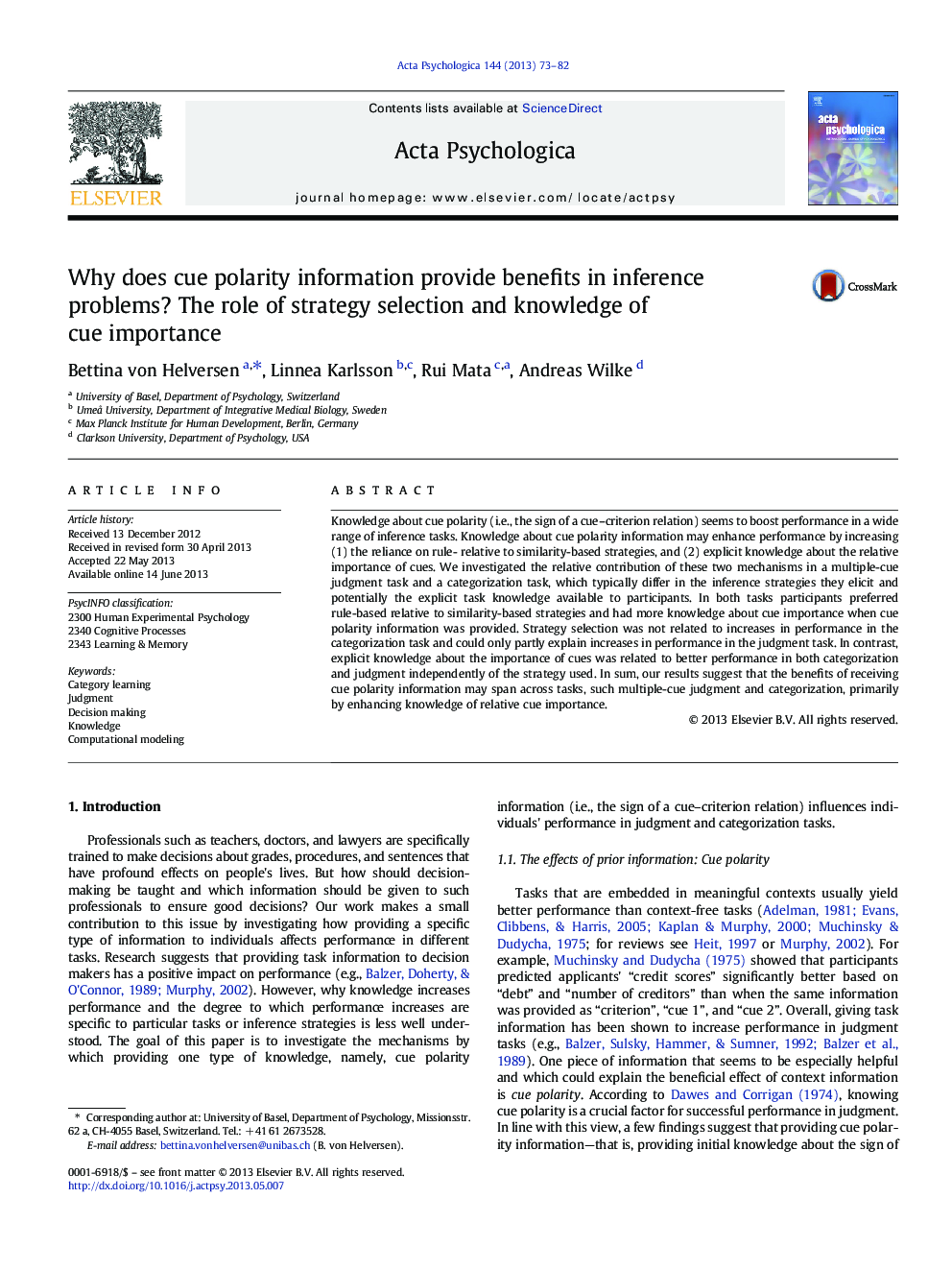| Article ID | Journal | Published Year | Pages | File Type |
|---|---|---|---|---|
| 919903 | Acta Psychologica | 2013 | 10 Pages |
•Knowing cue–criterion relations (cue polarities) can improve inferences.•We investigate these performance benefits in categorization and judgment.•Knowing cue polarities leads to increased reliance on rule-based strategies.•Knowing cue polarities leads to better learning of cue weights.•Both mechanisms may increase performance in categorization and judgment.
Knowledge about cue polarity (i.e., the sign of a cue–criterion relation) seems to boost performance in a wide range of inference tasks. Knowledge about cue polarity information may enhance performance by increasing (1) the reliance on rule- relative to similarity-based strategies, and (2) explicit knowledge about the relative importance of cues. We investigated the relative contribution of these two mechanisms in a multiple-cue judgment task and a categorization task, which typically differ in the inference strategies they elicit and potentially the explicit task knowledge available to participants. In both tasks participants preferred rule-based relative to similarity-based strategies and had more knowledge about cue importance when cue polarity information was provided. Strategy selection was not related to increases in performance in the categorization task and could only partly explain increases in performance in the judgment task. In contrast, explicit knowledge about the importance of cues was related to better performance in both categorization and judgment independently of the strategy used. In sum, our results suggest that the benefits of receiving cue polarity information may span across tasks, such multiple-cue judgment and categorization, primarily by enhancing knowledge of relative cue importance.
